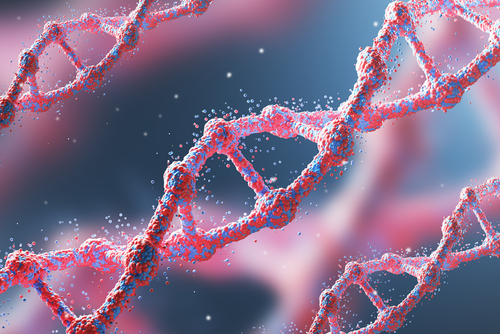Genetic analyses can benefit those at risk of hereditary cancer
IANS Nov 02, 2017
Genomics and genetic analysis are the most effective ways to manage cancer, not only in India but also across the globe.

Hereditary cancers are seen in approximately 10 per cent of the Western population, with a higher incidence in India. Hereditary cancer has high prevalence in breast and ovarian cancer patients. We see a very strong shift in this trend, with an increased incidence of cancer in India's younger population. The section of the population that is at risk of hereditary cancer will certainly benefit from genetic analysis.
With genetic testing, we can understand the genetic profile of the cancer. This knowledge leads to choice of targeted drugs that are designed to counter the cellular functions of the mutant proteins. Patients on active chemotherapy regimens are reassured that they do have alternative directed treatments if they do not respond to the ongoing treatment regimen. In the long run, targeted therapeutics would replace generic chemotherapy.
There is a great potential for targeted therapeutics. Cancer medicine, however, is evolving every day. There is much research and data to process and we still do not understand the full potential of genetic analysis and the benefits of targeted therapy based on the gene mutation. In such a scenario, if there is a targeted protein identified with effective medication available, then it would be better to treat the patient based on literature available after they have failed conventional treatment options.
New therapeutic drugs are being developed every year and their side effects are better controlled. Even though the cost of chemotherapy has drastically come down over time, targeted therapy has fewer side effects and causes lesser collateral damage to normal tissue. It is almost four to five times the cost of current chemotherapy regimens. As time progresses and these medications become generic, they would replace chemotherapy in the long run.
Genetic analysis of a tumour can support the choice of therapy at the initial stages of diagnosis as well as throughout the course of treatment. Cancer cells can mutate (change) and be present as a disease in multiple variant forms. This essentially means that we need a fresh "snapshot" of the genetic profile of each patient's cancer at every stage of the disease. New target proteins are produced due to these mutations.
To introduce new drugs to target these changes, an understanding of the genetic profile of a cancer -- quite like time-lapse photography to capture a sequence of events -- is absolutely vital. Liquid biopsy is precisely the technique to use to achieve this.The challenge in this setting is getting the patient to understand the concept in the first place and then accept the increasing cost with the recurring tests. This process of longitudinal cancer care with follow-up liquid biopsies is already the norm in the United States. It makes sense scientifically, and insurance companies cover the cost. In the long run, liquid biopsy-based personalised cancer therapy will become the norm in India as well.
-
Exclusive Write-ups & Webinars by KOLs
-
Daily Quiz by specialty
-
Paid Market Research Surveys
-
Case discussions, News & Journals' summaries